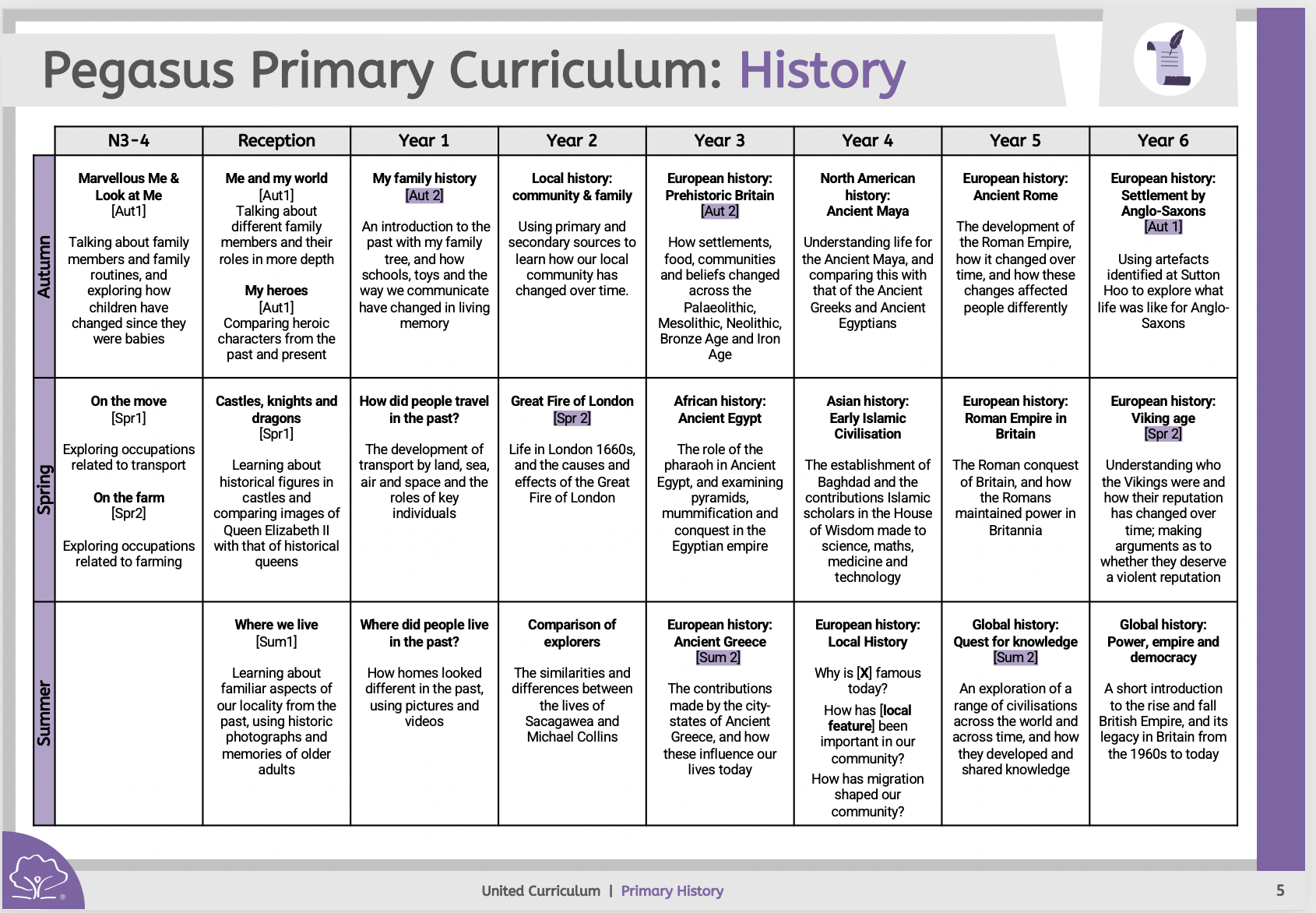Intent
The history curriculum at Pegasus Primary provides children with a coherent, chronological knowledge of the history of Britain and the wider world, through the framework of three vertical concepts. These vertical concepts provide both a concrete lens through which to study and contextualise history, as well as use small steps to help pupils to gain a deep understanding of complex, abstract ideas:
How do people understand the world around them? What is believed; what is known; what scientific and technological developments are made at the time? How is knowledge stored and shared?
- ‘Power, empire and democracy’
Who holds power, and what does this mean for different people in the civilisations? How is power wielded and legitimised? How are people’s rights different in different historical contexts?
What is life like for people in different societies? How are these societies structured? How are family or community relationships different in different historical contexts?
There are oppotunitites for all pupils to see themselves reflected in the curriculum, but also to be taken beyond their own experiences. Our history curriculum teaches pupils about civilisation from across the world, and always incorportaes the experiences - positive and negative - of ethnic minorities in the history of Britain.
We intend to embed core disciplinary knowledge, and the ability to approach challenging, historically-valid enquiry questions in to all lessons.
Our curriculum is designed in way which creates excitement for history, that inspires a curiosity to learn more about the past and provides opportunities to see themselves reflected in the curriculum.
Implementation:
When planning the History Curriculum at Pegasus, teachers plan with the three vertical concepts in mind and understanding the end point. As part of this planning process, teachers plan the following:
- A knowledge organiser which outlines knowledge (including vocabulary) all children must master.
- A Pre-Learning Quiz provides teachers with the children's prior knowledge, therefore informing planning.
- A cycle of lessons for each subject, which carefully plans for progression and depth as well as weaving in both disciplinary and substantive knowledge.
- Low stakes quizzes which are used regularly to support learners’ ability to retrieve and recall knowledge and increase space in the working memory.
- Challenge questions for pupils to apply their learning 'as Historians'.
Impact:
Our History Curriculum is high quality, well sequenced and planned to demonstrate progression. We believe that if children are keeping up with the curriculum, they will be making good or better progress. The impact of our pupils learning in History can be measured in many ways:
- Formative assessment in each lesson enables teachers to reflect on whether the intended outcome has been met or whether any additional lessons or adaptations to future planning are needed.
- Low-stakes quizzes such as a post-learning quiz is provided for every unit. These questions aim to assess whether pupils have learned the core knowledge for that unit. The results of these quizzes will enable teachers to fill gaps and address misconceptions before moving on.
- Discussions with pupils about their History topic as well as learning in their books allows us to assess how much curriculum content is secure. These conversations are used most effectively to determine whether pupils have a good understanding of the vertical concepts, and if they can link recently taught content to learning from previous units.
